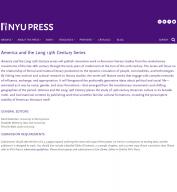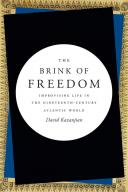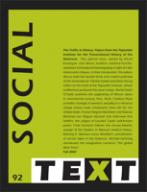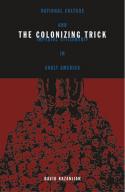David Kazanjian
Professor of English
Chair of Comparative Literature and Literary Theory, 2024-25, 2026-2028
(he/him/his)
Office Hours
fall 2025On Sabbatical 2025-26
Research Resident, Vartan Gregorian Center for Research in the Humanities, New York Public Library, 2025
Visiting Scholar, School of Social Science, Institute for Advanced Study, Princeton, 2026
David Kazanjian received his PhD from the Rhetoric Department at the University of California, Berkeley, his M.A. in Critical Theory from the University of Sussex, and his B.A. in Modern Thought and Literature from Stanford University. His area of specialization is transnational American literary and historical studies through the 19th century. His additional fields of research are political philosophy, continental philosophy, Latin American studies (especially 17th through 19th-century Mexico), colonial discourse studies, and Armenian diaspora studies. He has been a member and a visiting scholar of the School of Social Science at the Institute for Advanced Study in Princeton; a Research Resident at the Vartan Gregorian Center for Research in the Humanities at the New York Public Library; a Marta Sutton Weeks External Fellow at the Stanford Humanities Center; a Wertheim Scholar at the New York Public Library; and a fellow at the John Carter Brown Library. He was honored with the 2022 Penn Provost's Award for Outstanding Mentorship of Ph.D. Students, and he has been offered the Berlin Prize at the American Academy of Berlin. He has received major grants from the Andrew W. Mellon Foundation for a Sawyer Seminar on "Race, across Time and Space," the National Endowment for the Humanities, and the Calouste Gulbenkian Foundation for "Infidelities." His first book The Colonizing Trick: National Culture and Imperial Citizenship in Early America (Minnesota) offers a comparative study of colonial and antebellum, racial and national formations, and a critique of the formal egalitarianism that animated early U.S. citizenship. He has co-edited (with David L. Eng) Loss: The Politics of Mourning (California), as well as (with Shay Brawn, Bonnie Dow, Lisa Maria Hogeland, Mary Klages, Deb Meem, and Rhonda Pettit) The Aunt Lute Anthology of U.S. Women Writers, Volume One: Seventeenth through Nineteenth Centuries (Aunt Lute Books). He has also published widely on the cultural politics of the North American-Armenian diaspora, and co-edits—with Priscilla Wald (Duke) and Elizabeth McHenry (NYU)—a book series on America and the Long 19th Century for NYU Press. He is a member of the editorial collective of the journal Social Text and of the organizing collective of the Tepoztlán Institute for Transnational History of the Americas, which he co-directed from 2017-19. His most recent monograph, The Brink of Freedom: Improvising Life in the Nineteenth-Century Atlantic World (Duke) is a study of two 19th-century social movements (the black settler colonization of Liberia and the Caste War of Yucatán) that improvised with liberal discursive practices of freedom. He is currently at work on two monographs: Ante-Possession: The Afterlives of Dispossession, a study of 17th and 18th-century legal cases of dispossession in New England and Yucatán; and Kinships Past, Kinship's Futures, which tracks the emergent re-orientation of Armenian diasporic cultural politics away from the normative task of identity consolidation and toward an openness to odar worlds.
He a faculty member in the Program in Comparative Literature and Literary Theory, serving as Coordinator and Graduate Chair of the program during 2024-25 and 2026-2028; an affiliated faculty and executive council member in the McNeil Center for Early American Studies; a core faculty in Gender, Sexuality, and Women’s Studies; a member of the graduate group in the Department of Spanish and Portuguese; an affiliated faculty member in the Latin American and Latinx Studies Program; and an affiliated faculty member in the Middle East Center.

 Department of English
Department of English






